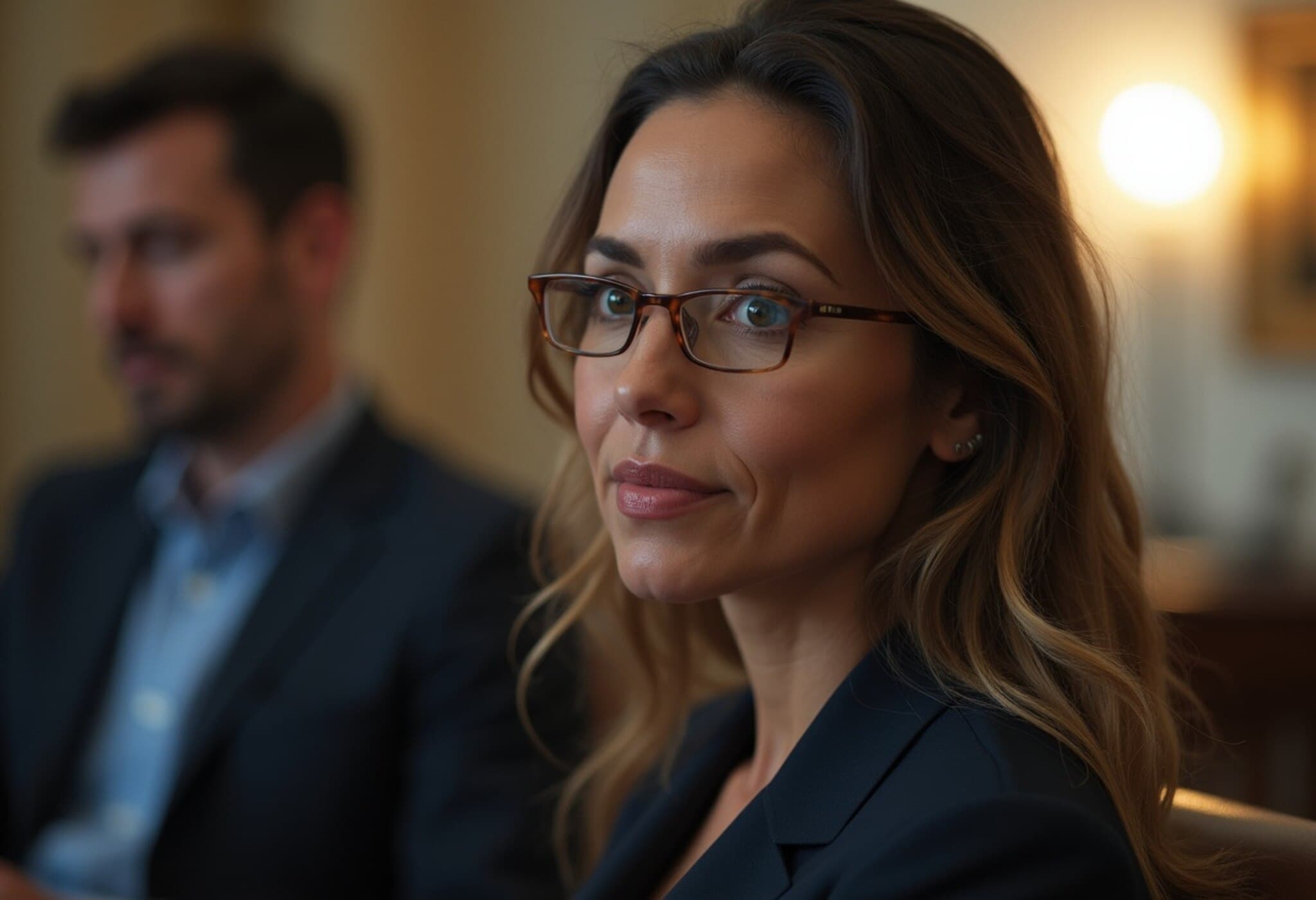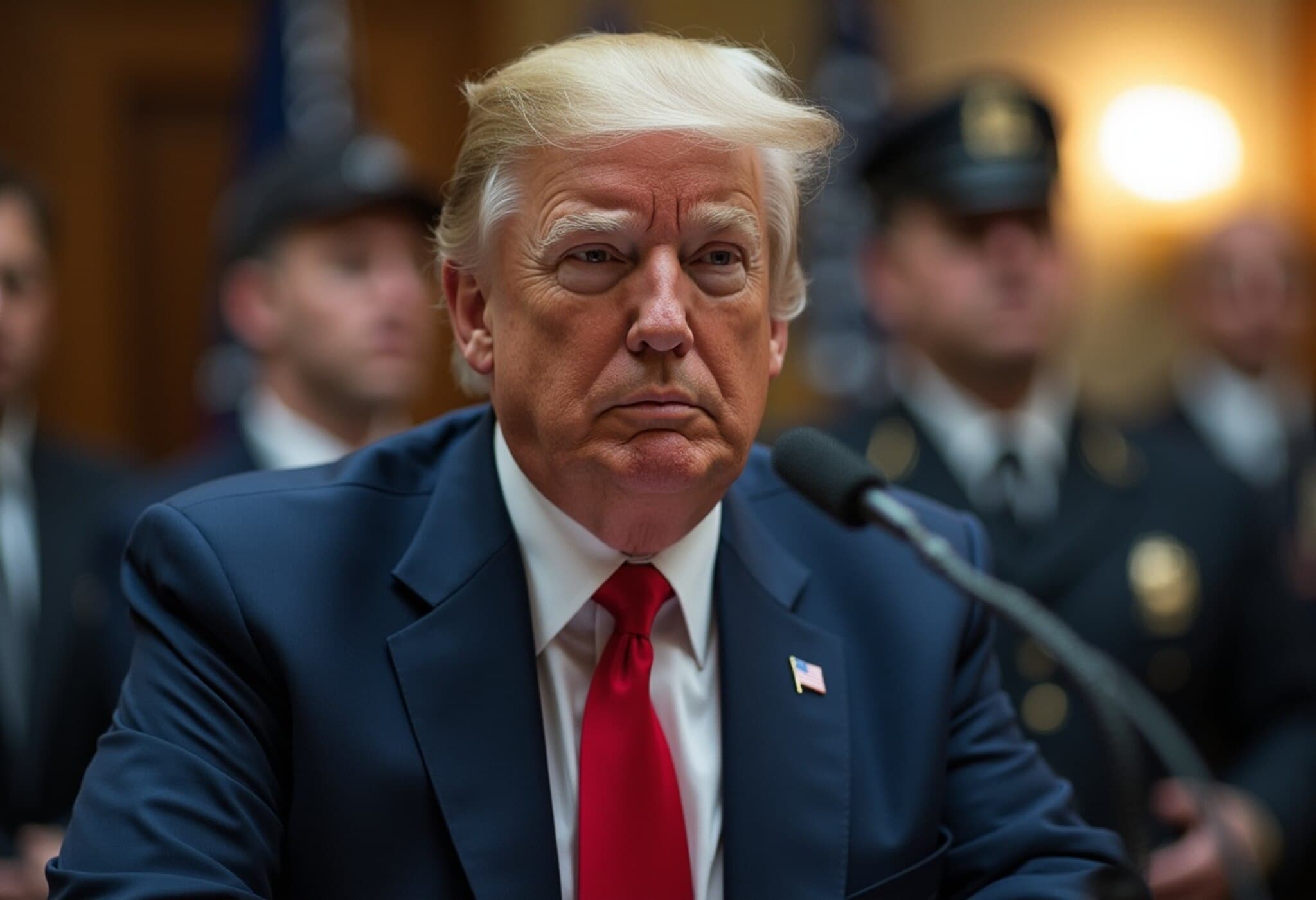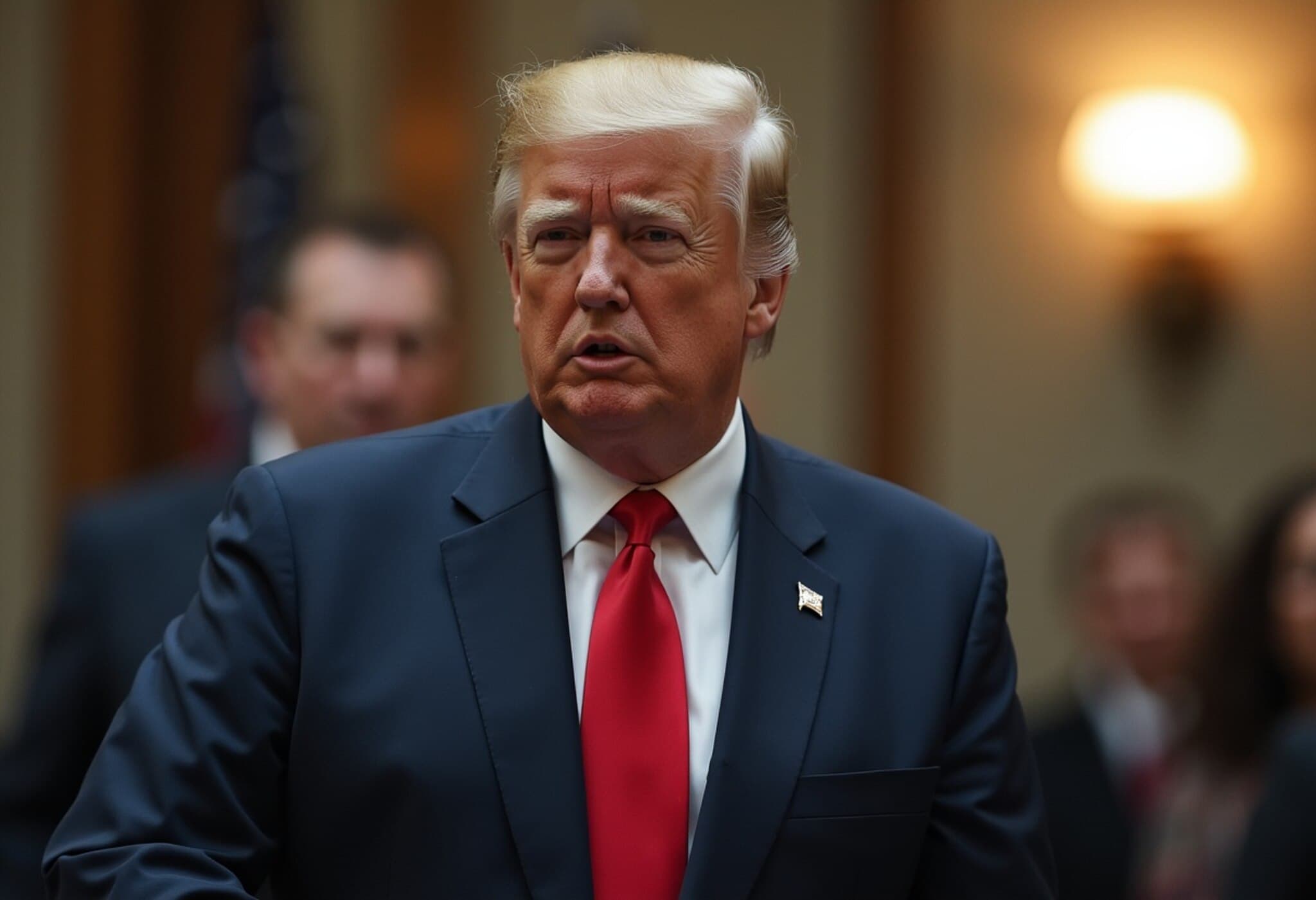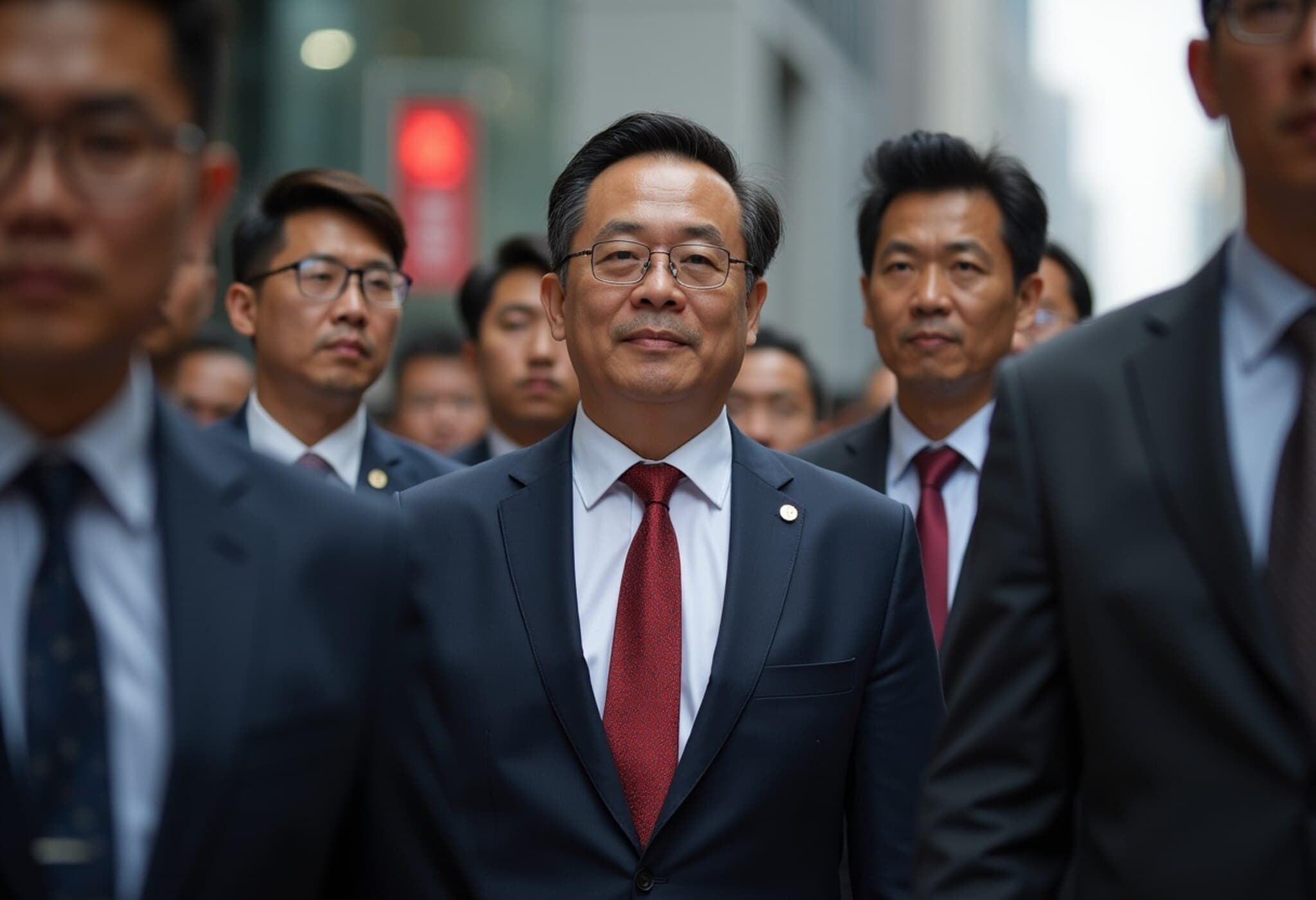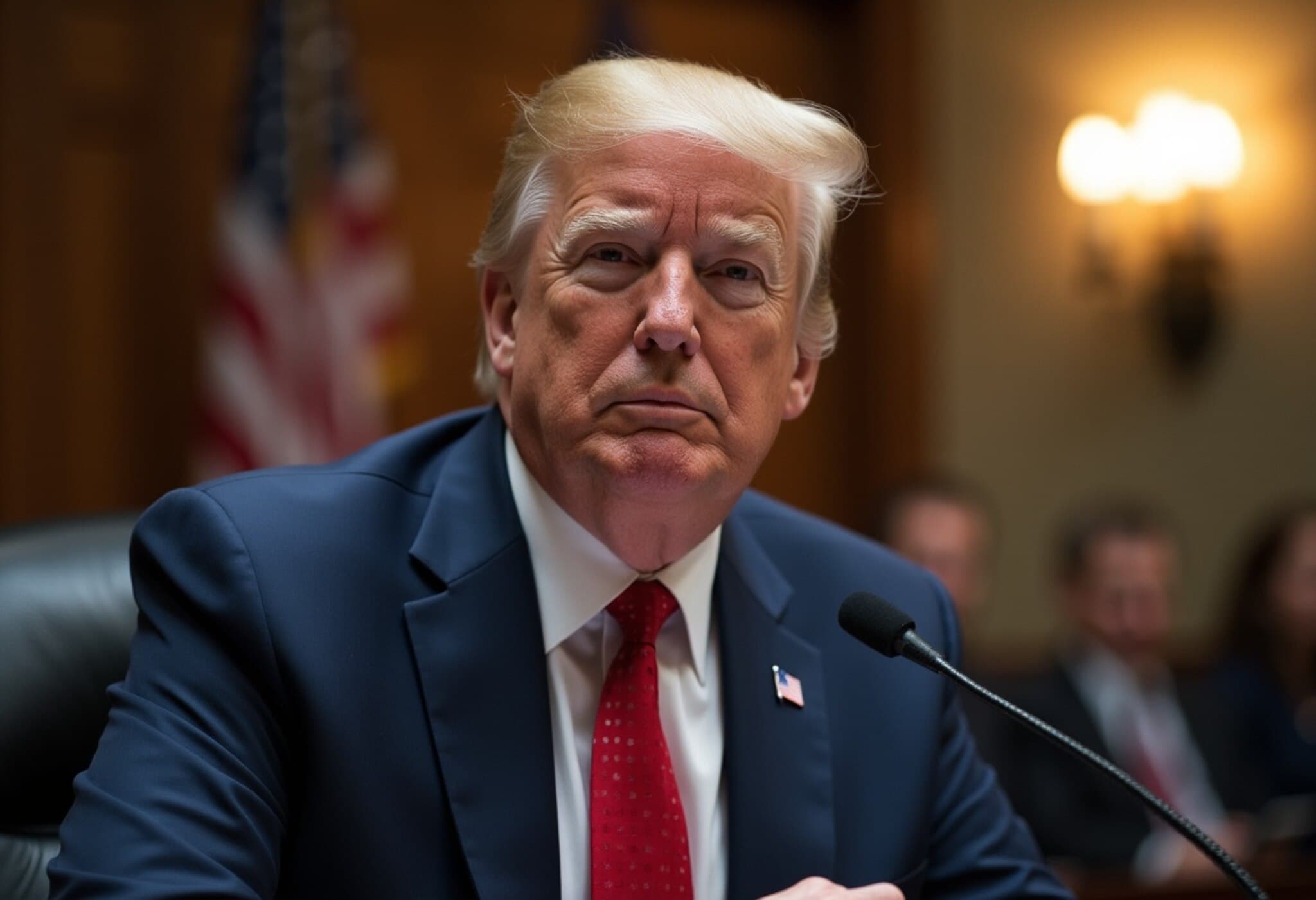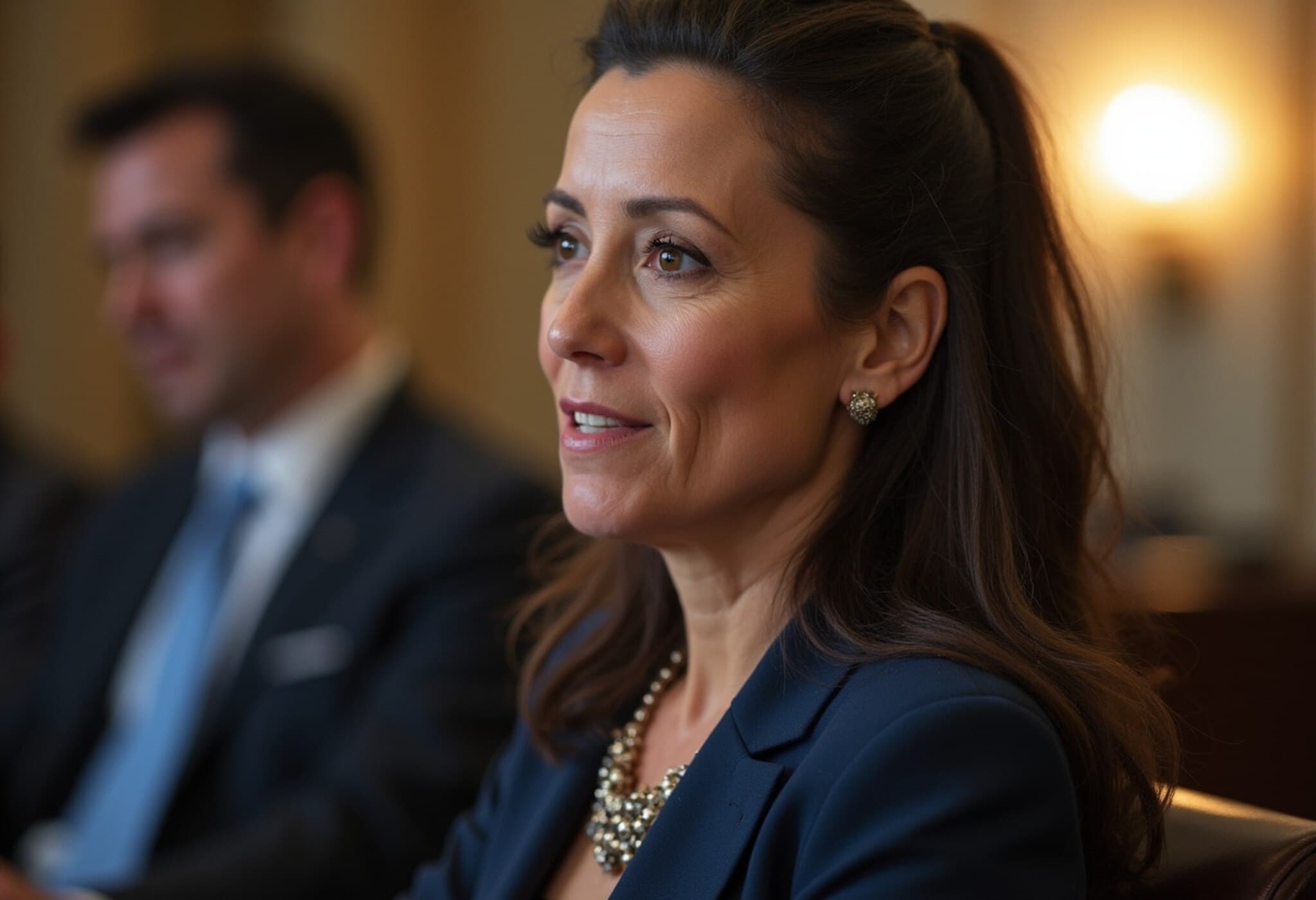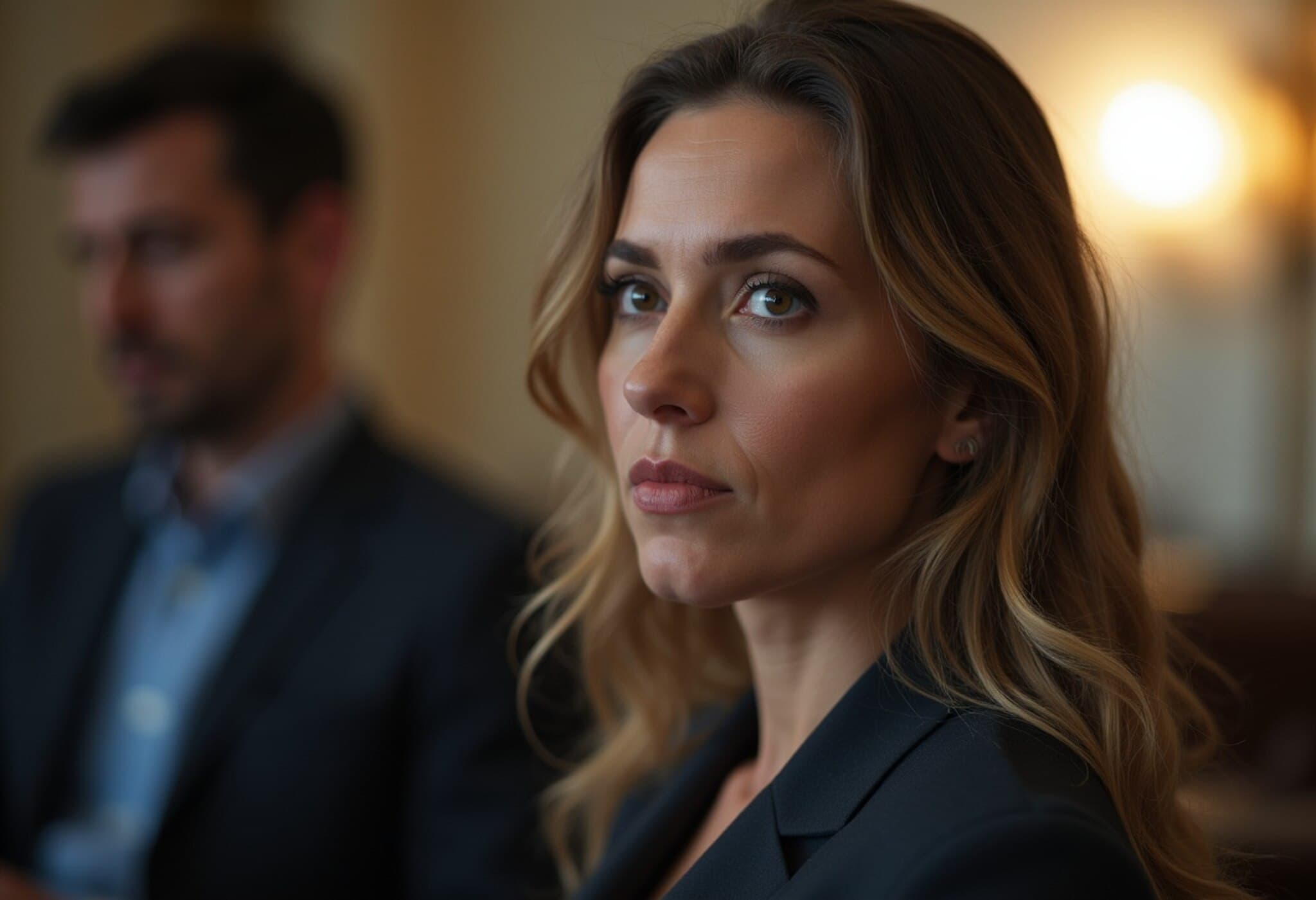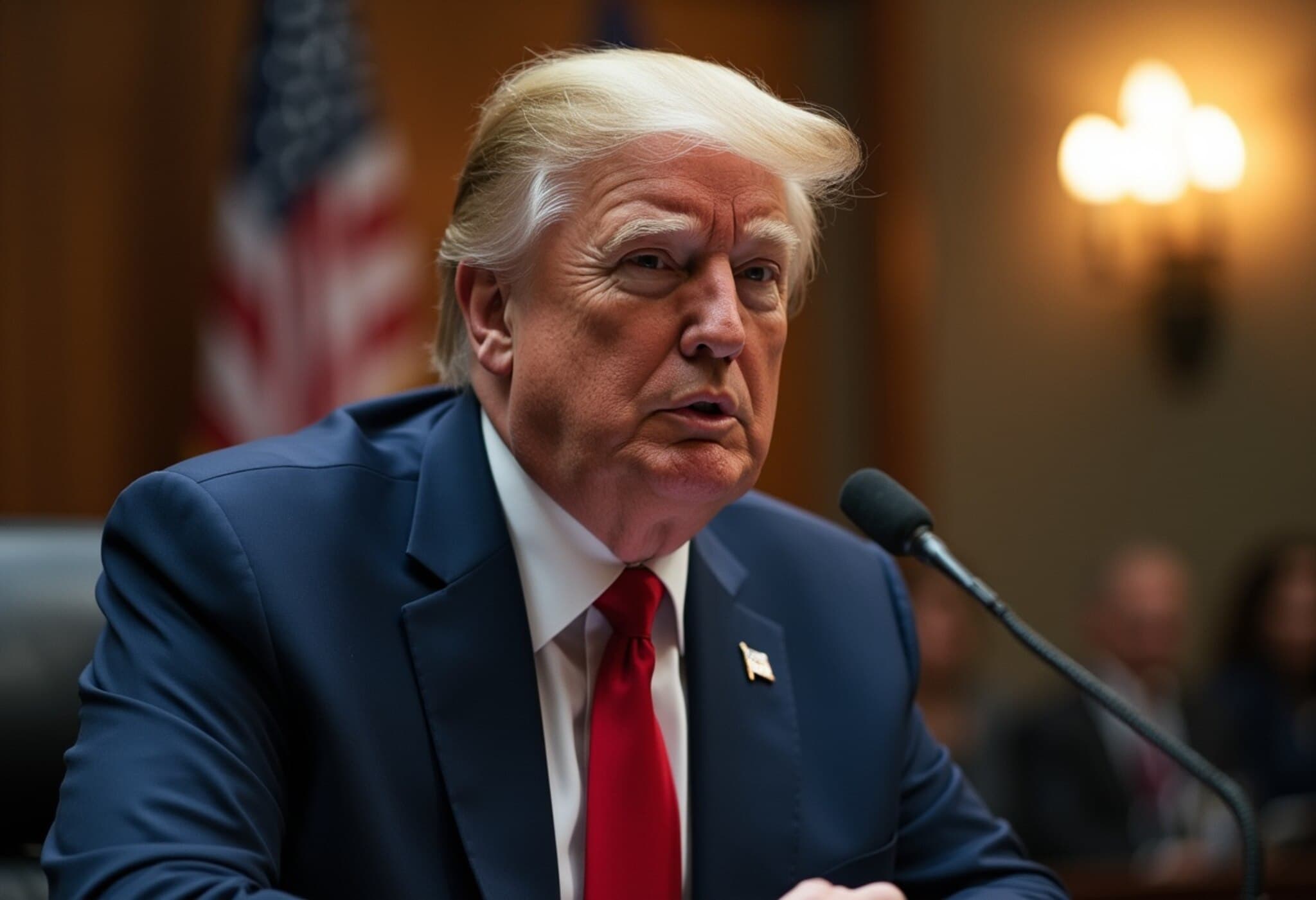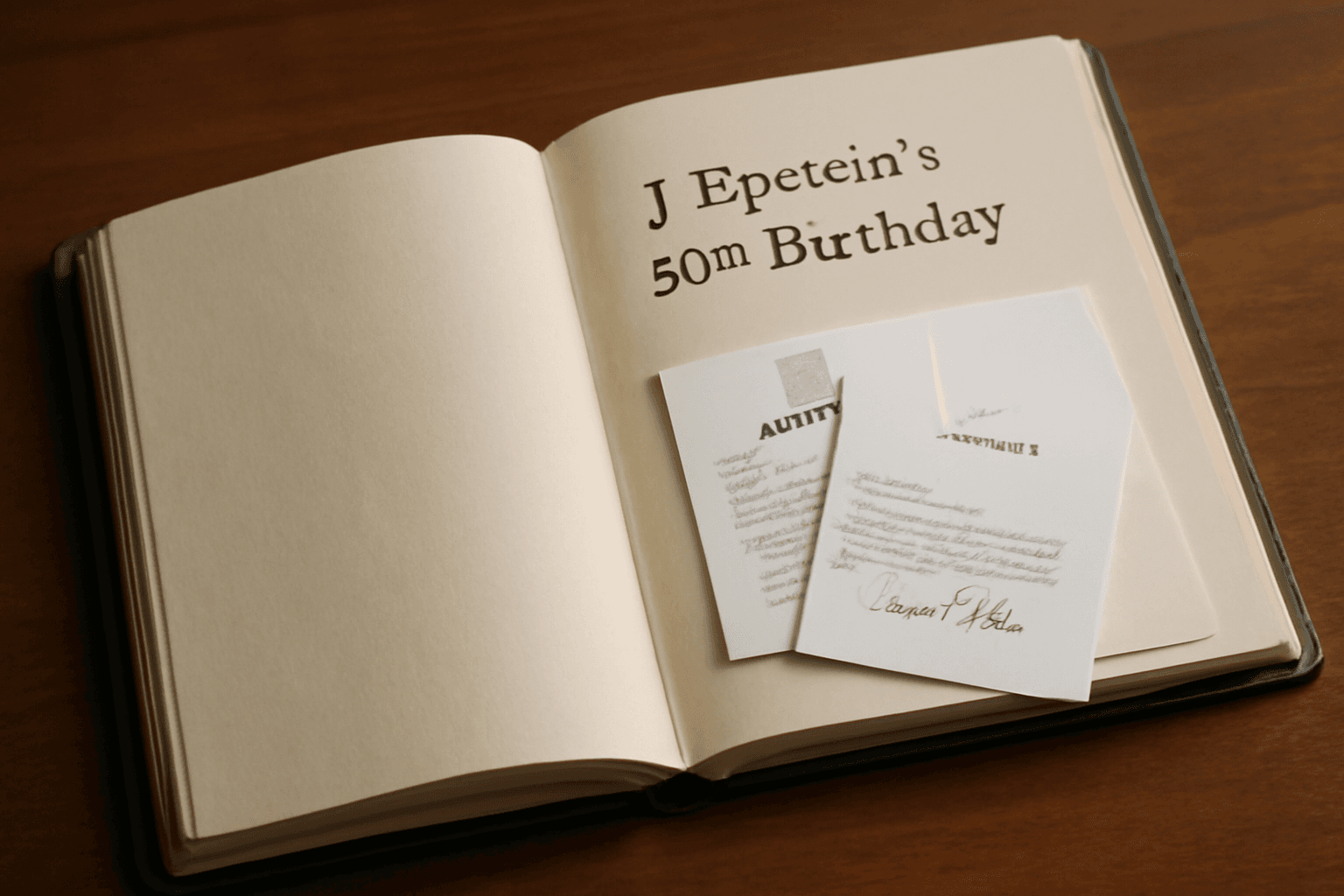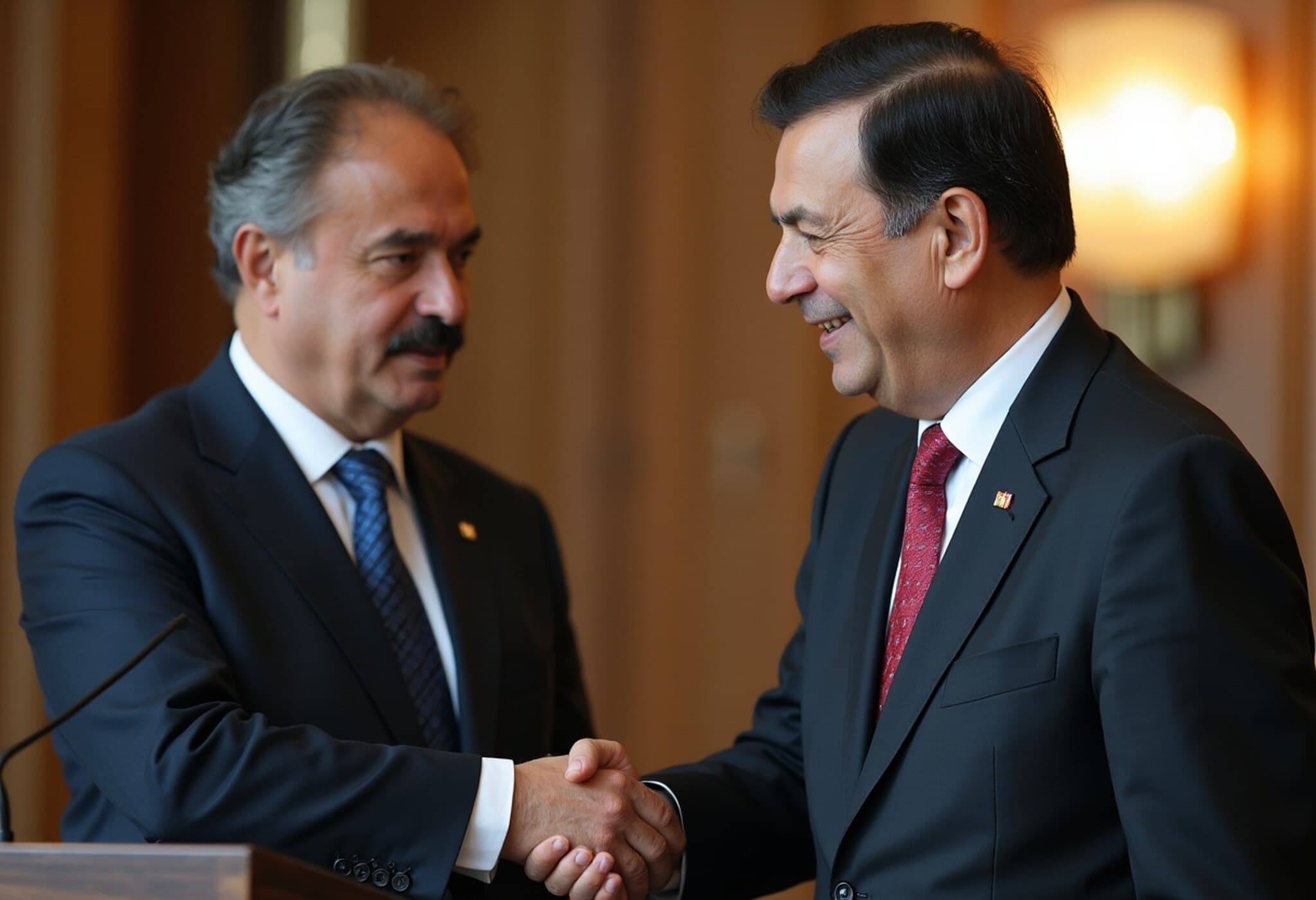Ghislaine Maxwell's Lengthy Interview Raises Questions Over Possible Pardon
On a sweltering day outside the federal courthouse in Tallahassee, Florida, the low hum of a plane banner circling overhead read "Trump and Bondi are protecting predators," underscoring growing unease surrounding Ghislaine Maxwell’s high-profile legal saga. Following a marathon interview with Todd Blanche, Deputy Attorney General under Pam Bondi, Maxwell, serving a 20-year sentence for sex trafficking, answered exhaustive inquiries regarding roughly 100 individuals, a list cloaked in mystery—whether victims, co-conspirators, or others linked to Epstein's scandal remains unknown.
The Interview and Its Implications
The extensive eight- to ten-hour session marks a second extraordinary meeting with federal officials, fueling speculation about Maxwell’s legal strategy. Her defense team explicitly seeks to overturn or reduce her sentence—or secure a presidential pardon. President Donald Trump, when questioned about possibly granting clemency, remained noncommittal, stating, "I’m allowed to do it, but it’s something I haven’t thought about," before departing for a trip to Scotland.
Upon arrival overseas, Trump downplayed awareness of the content during his interview with Maxwell, emphasizing, "Obviously, this is no time to be talking about pardons." Meanwhile, Todd Blanche characterized his visit as a neutral fact-finding mission yet announced the closure of any federal investigations beyond Maxwell and Epstein. This paradox raises critical questions about the interview’s true objective—whether it serves justice or political expediency.
Legal Nuances and the Question of Immunity
The Justice Department reportedly offered Maxwell conditional immunity, protecting her only if she was truthful during the interrogation. Any falsehoods would nullify that immunity, leaving her vulnerable to additional charges. This delicate balance places Maxwell’s credibility—and potentially the broader Epstein case—in a precarious position.
Political and Public Response: Justice System Under Scrutiny
The high-profile nature of the case and its intersection with prominent political figures, including Trump and Bondi, has sparked intense scrutiny and criticism. Senator Chuck Schumer publicly questioned whether Blanche’s meeting involved a "corrupt deal" designed to exonerate Trump. Survivors and activists voiced deep concern over the potential erosion of justice. Teresa Helm, an Epstein abuse survivor who testified against Maxwell, warned that any leniency would represent a "complete crumbling" of the justice system’s commitment to survivors.
- Lisa Lloyd, a protester at the courthouse, implored, "She should stay in prison," reflecting the sentiments of many advocates.
- Despite prevailing skepticism, some conservative outlets, previously unwavering in their condemnation of Maxwell, have begun questioning the fairness of her trial, speculating if she might, in fact, be a victim herself.
Maxwell's Legal Battle: Supreme Court Appeal and Congressional Subpoena
Alongside explorations of clemency, Maxwell continues her legal fight by appealing her conviction to the Supreme Court, citing a 2007 nonprosecution agreement in Florida that she argues should have shielded her in New York as well. Adding to her legal obligations, Congress has subpoenaed her for testimony in August, though her legal team has yet to confirm participation.
Intersecting Scandals: Epstein Files and Trump’s Involvement
In May, Bondi and Blanche briefed President Trump on high-profile names found within the Epstein files, including his own. Trump categorically denies ever being briefed or implicated. These revelations highlight ongoing tensions within the White House, especially among Trump supporters eager for transparency on the Epstein case. Meanwhile, Trump’s top FBI appointees previously insisted more evidence remained undiscovered.
Details unveiled indicate Trump’s social circle was once entwined with Epstein’s, though relations reportedly soured in the early 2000s. Notably, Bondi distributed binders containing phone numbers from Epstein-related files at the White House, underscoring the tangible proximity of these allegations to the nation’s highest office.
Expert Analysis: What Does This Mean for Justice and Politics?
This unfolding episode highlights the complex interplay between the American justice system, political power, and media narratives. Maxwell’s exhaustive interview—while positioned as a purported fact-finding endeavor—raises alarm bells about potential obstruction or manipulation, especially as unresolved questions linger about the extent of Epstein’s network and the immunity offered to high-profile figures.
The case underscores the persistent challenge of balancing legal accountability with political influence, particularly when powerful personalities are involved. It also amplifies concerns about victims’ rights and the pursuit of justice amid swirling controversy and attempting narratives that could reshape public perception.
Looking Ahead: What Should Americans Watch For?
- Will the Justice Department release substantive findings from these interviews, or will details remain opaque?
- How will Maxwell’s Supreme Court appeal influence the precedent on nonprosecution agreements across jurisdictions?
- Could a presidential pardon reshape not only Maxwell’s fate but public trust in the justice system?
- Will Congressional testimony finally shed light on undisclosed aspects of the Epstein scandal?
Editor’s Note
Ghislaine Maxwell’s recent high-profile interview puts a spotlight on both the fragility and significance of the American justice process when entwined with politics and public opinion. As this story develops, the tensions between legal rigor and political strategy will test institutional integrity. This case serves as a stark reminder: true justice demands not only meticulous legal pursuit but also transparency and unwavering commitment to survivors of abuse. Readers are encouraged to critically evaluate emerging information, remain attuned to future legal developments, and demand sustained accountability from all parties involved.
Stay informed with thoughtful, credible reporting as this crucial narrative unfolds.

